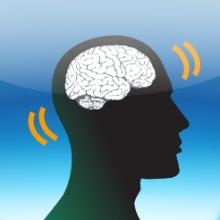
Signs suggesting that an athlete has suffered a concussion are hard to spot. As a result, diagnosing a concussion often depends on finding out whether an athlete is experiencing concussion symptoms.
The problem is, as study after study shows, chances are high that an athlete who has had his "bell rung" or been "dinged" won't tell anyone he is experiencing concussion symptoms.
Why? There are lots of reasons, but mostly because players fear losing playing time or disappointing the coach, teammates, parents or even themselves if they don't display the toughness our sports culture expects even of our youngest athletes.
The solution: help athletes feel safe that they won't be penalized in some way if they honestly self-report symptoms of concussion.
We can do that by repeatedly, consistently, and actively:
- Encouraging athletes to tell an adult they trust if they or a teammate are experiencing symptoms, even those as seemingly 'mild' or temporary as 'seeing stars' or being momentarily stunned.
- Assuring athletes that they will not jeopardize their position as a starter or place on the team simply because they self-report, and that, in the long run, they will likely miss less action by telling someone because continuing to play with concussion symptoms lengthens recovery time.
- Promising athletes that no one - whether it be their coach, parents, or other players - is going to question their toughness, or call them "wimps" or "sissies", if they self-report (even when we may have been raised to believe just that);
- Informing athletes that it is against team rules to fail to report or under-report concussion symptoms (theirs or a fellow player's) or claim to be symptom-free after a diagnosed concussion when they are not.
There is a growing body of evidence challenging the conventional wisdom that inadequate athlete concussion knowledge is the principal barrier to increased reporting, and supporting the belief that other ways need to be found to keep athletes safe, including enlisting coaches and parents in creating an environment in which concussion symptom reporting is actively encouraged. More and more researchers recommend that concussion education focus more on the coach's critical role in facilitating concussive symptom reporting by communicating to athletes positive messages about concussion reporting, by fostering a "culture of safety", and by creating channels for reporting through a variety of formal and/or informal means.
Attitude: more important than knowledge?
Until recently, the conventional wisdom has been that the principal reasons for the chronic under-reporting by athletes of concussive symptoms is inadequate athlete concussion knowledge, and that increased concussion education - as is mandated by the laws in almost every state - would likely remove the primary barrier to concussive symptom reporting.
But several recent studies have found that athlete concussion knowledge was not the most important barrier to concussive symptom reporting. Rather, it was that athletes were hesitant to report concussive symptoms out of concern as to how their reports would be received by their coach.
The reasons athletes give for choosing to continue playing while experiencing symptoms include that:
- they did not want to stop playing or be pulled from the game;
- they questioned whether the symptoms, many of which are not specific to concussions (e.g. headache, dizziness, nausea), could have been caused by something other than concussion;
- it was not acceptable to leave the game for nonspecific symptoms of a concussion because if they were wrong, the coach might punish them for reporting by removing them a starting position, reducing future playing time, or inferring that reporting concussive symptoms made them "weak" (a sentiment expressed by both soccer and football players, male and female);
- they didn't want to let the team down; and
- they had received negative messages from coaches regarding injury reporting (although, to be fair, some reported having received positive messages from coaches regarding concussive symptom reporting.
One recent study found that, while the culture of sport (including influences from professional and other athletes), as well as the media and other outside sources play a role in the decision of student-athletes to report experiencing concussion symptoms, it is coaches and teammates, along with parents, who have the strongest influence on the decision to report a concussion during sport participation.
The findings prompted lead author Dr. Johna Register-Mihalik, an assistant professor of exercise and sport science, and faculty member at the Matthew Gfeller Sport-Related TBI Research Center at UNC-Chapel Hill, to recommend the need for "multi-level" concussion awareness programs, starting with the intra-personal (the individual) and moving through the inter-personal (relationships to the individual), the organizational level (team) [to] the policy level," with the intra-personal and inter-personal level targets "aimed at creating positive attitudes and beliefs towards concussion and concussion reporting," both among indidividuals as well as parents, coaches, and teammates, and towards "creating an environment that rewards positive concussion-care seeking behaviors such as reporting an injury or removing one's self from play when experiencing concussive symptoms."
Choosing safety
But the choice is ours: we can continue to teach our children that reporting concussion symptoms - or any injury, for that matter - is a sign of weakness, or we can teach athletes, from the first time they strap on a helmet, kick a soccer ball, or pick up a lacrosse stick, the right kind of attitudes about sports safety and concussion that they can carry with them through their sports careers and the rest of their lives.
Related articles
Want to learn more about the problem of chronic under-reporting by athletes of concussion symptoms and why experts say creating a safe reporting environment, not just educating about the signs and symptoms of concussions, may be one of the best ways to combat the problem? Check out these articles:
Coaches Can Play Important Role in Encouraging Athletes To Report Concussion Symptoms, Studies Find
Chronic Under-Reporting Of Concussion: Is Changing The Culture A Realistic Solution?
Underreporting of Concussion By High School Athletes Continues Despite Increased Education
Honest Self-Reporting Of Concussion Symptoms Critical
Coaches: Improve Concussion Safety By Creating Safe Environment For Athlete Self-Reporting
Athletes' Resistance To Self-Reporting of Concussion Continues Despite Increased Education



